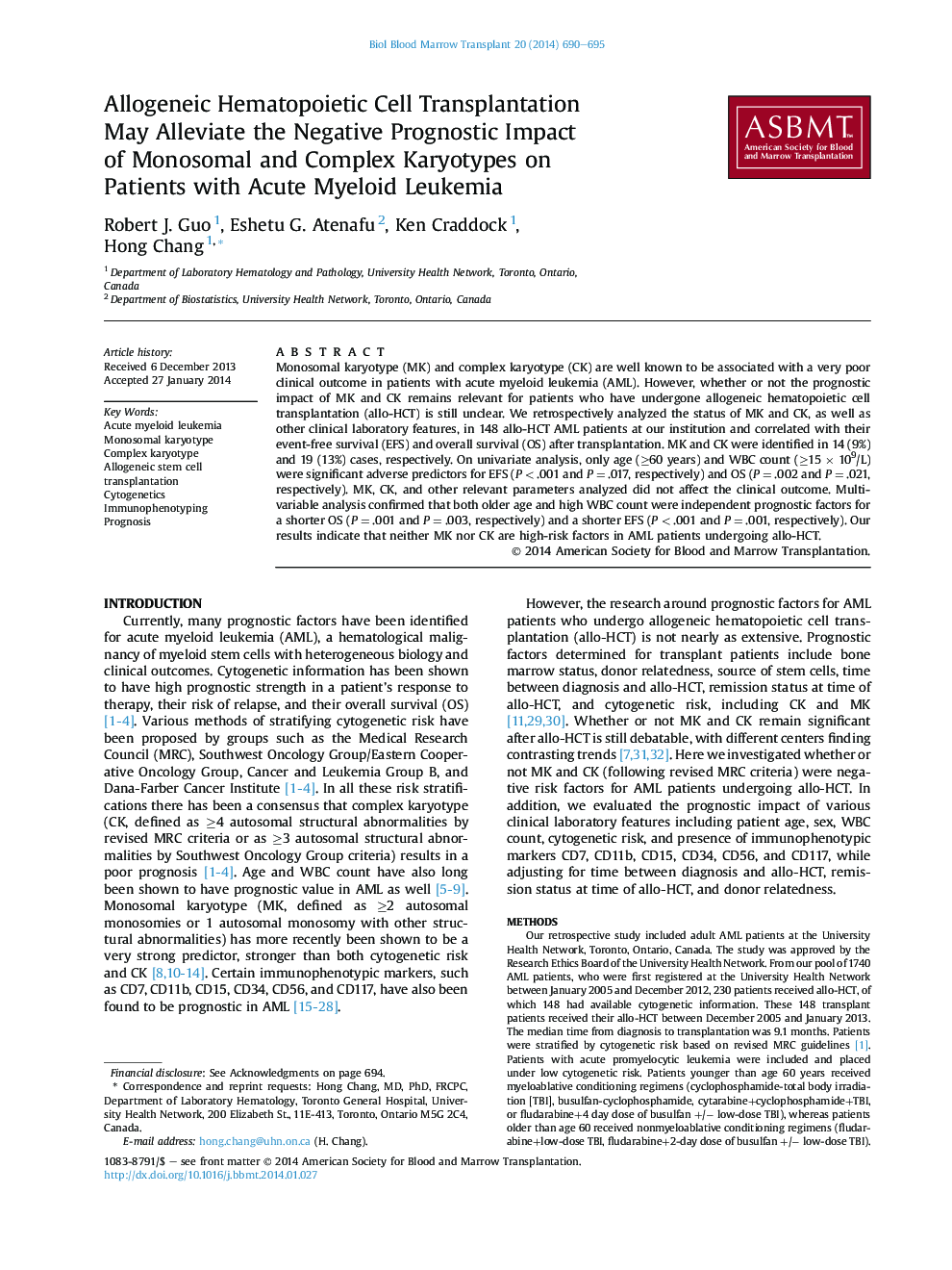| کد مقاله | کد نشریه | سال انتشار | مقاله انگلیسی | نسخه تمام متن |
|---|---|---|---|---|
| 2102083 | 1546280 | 2014 | 6 صفحه PDF | دانلود رایگان |
Monosomal karyotype (MK) and complex karyotype (CK) are well known to be associated with a very poor clinical outcome in patients with acute myeloid leukemia (AML). However, whether or not the prognostic impact of MK and CK remains relevant for patients who have undergone allogeneic hematopoietic cell transplantation (allo-HCT) is still unclear. We retrospectively analyzed the status of MK and CK, as well as other clinical laboratory features, in 148 allo-HCT AML patients at our institution and correlated with their event-free survival (EFS) and overall survival (OS) after transplantation. MK and CK were identified in 14 (9%) and 19 (13%) cases, respectively. On univariate analysis, only age (≥60 years) and WBC count (≥15 × 109/L) were significant adverse predictors for EFS (P < .001 and P = .017, respectively) and OS (P = .002 and P = .021, respectively). MK, CK, and other relevant parameters analyzed did not affect the clinical outcome. Multivariable analysis confirmed that both older age and high WBC count were independent prognostic factors for a shorter OS (P = .001 and P = .003, respectively) and a shorter EFS (P < .001 and P = .001, respectively). Our results indicate that neither MK nor CK are high-risk factors in AML patients undergoing allo-HCT.
Journal: - Volume 20, Issue 5, May 2014, Pages 690–695
